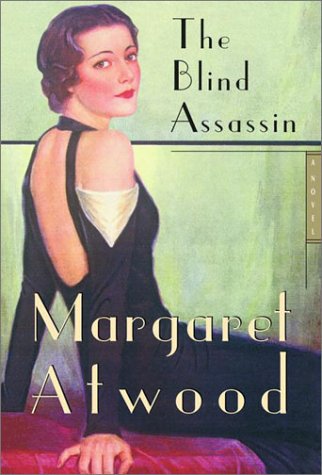Reviewed by gmcgregor on
She starts with the story of her grandparents, and the button factory her grandfather started in their small Canadian town, the profits from which rendered him suitable enough marriage material for her grandmother, from a society family in decline. When their three sons went off to war, only Iris's father came back. His wife, Iris and Laura's mother, was never especially healthy and died from complications from a miscarriage. Her father tries to keep the family business together through the Depression, but the Chases find themselves unable to even maintain their own finances, and that's how Iris finds herself married off to Richard, an older industrialist, in a deal that's supposed to keep the factory open and what's left of the family afloat. Instead, the entire Chase family capsizes, in their own ways.
Margaret Atwood is an incredibly gifted author. To pull off the narrative structure of the book, with its intertwining threads and mysteries, is a fiendishly difficult task, but to do it while writing so beautifully and powerfully is the work of a master. It is a little jarring at the beginning, when you're first getting used to the path the book is taking you down, but it works. There were so many passages in this book that I marked, struck by how gorgeous the phrasing was. The characters, particularly Laura and Richard, were vivid, and Iris herself is someone we gradually come to understand as she tells her story and feels so real that when the book and her story end, the loss feels unusually poignant.
This is an incredible book: sad, yes, but told with such skill and in a way that keeps you wanting more and more...I had a hard time putting it down at night. I'm kicking myself that this is only my second Atwood and I'm really looking forward to getting into more of her work. As a heads up to potential readers, there is some really heavy stuff in here: parental death, spousal abuse, sexual abuse/rape...I think Atwood handles this material with sensitivity and grace, but it's something to be aware of. I'd recommend this book strongly, particularly for mature readers (there's nothing gratuitous, but there's a lot of darkness and I think it's a work that's best appreciated with a little life experience behind the reader).
Reading updates
- Started reading
- 14 October, 2017: Finished reading
- 14 October, 2017: Reviewed
